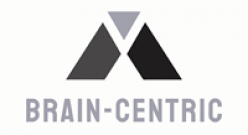Does your team struggle when a new concept or technique is introduced, or do they use it to their advantage? Is change in the organization a stumbling block, or an opportunity? More than just being business-led, and no matter if the management model is loose or controlled, the strongest determinant of your success is whether your team has adaptive expertise or routine expertise.
What’s the Difference?
A routine expert can master procedures in order to become highly efficient and accurate (but not flexible or adaptable in situations that are outside the routine). People who are routine experts can accelerate efficiency through well-practiced routines.
An adaptive expert is a broad construct that encompasses a range of cognitive, motivational, and personality-related components, as well as habits of mind and dispositions. Generally, problem-solvers demonstrate adaptive expertise when they are able to efficiently solve previously encountered tasks and generate new procedures for new tasks. Requires an individual to develop conceptual understanding that allows the “expert” to invent new solutions to problems and even new procedures for solving problems.
To illustrate, imagine two sushi chefs. One makes every piece perfectly, crafting the same few rolls over and over (routine, or classic, expertise). The other is inventive, producing new menus frequently (adaptive expertise). While the first chef can craft an incredible Tuna roll, they will struggle when they run out of the right ingredients. How does one make a California roll without cucumber or avocado? The second chef is used to thinking on their feet. An adaptive expert understands why cucumber and avocado is used in the first place, and therefore has a better chance of finding a substitute.
To some, this is an unfair comparison, as ones’ environment supports behavior. For example, the routine of the classic expert sushi chef may be tied to his restaurant environment, and this chef may be able to break out of the routines easily given a different situation.
Actually, that argument is exactly correct. You see, the organization that employs both chef’s has some control over how well each person understands their craft.
That means that you have the power and opportunity to foster a work culture of adaptive expertise.
Why It’s Difficult to Foster Adaptive Expertise
People are taught to have routine expertise thanks to our school systems, learning & development departments, and instructional designers.
As a result, most of us aren’t learning any faster than someone who lived 100 years ago. While you can recite information as quickly as your wireless connection allows, you aren’t retaining any more knowledge than people were at the start of the tech revolution.
Presentations haven’t gotten any better. Many would argue they are a million times worse (think Death By PowerPoint). In many respects, all technology has allowed us to do is move the bullet point list from the chalkboard to the smart board.
Use BcD to Create Adaptive Expertise
Brain-centric Design is the surprising neuroscience behind learning for deep understanding. To “BcD” a presentation, is to align your material the way the brain will accept that information. You want the learners, your audience, to understand and benefit from your knowledge by making it their information. This is made possible through the cognitive approach to learning, or the way you learned before school.
Luckily for you, there is a recipe for cognitive learning. Or, as our Cognitive Learning Scientist Dr. Kieran O’Mahony calls it, a “pedagogic model.”
Presenting your information to your learners using the Brain-centric Design pedagogic model produces deep understanding in the learner. This understanding enables adaptive expertise. It is that simple.


